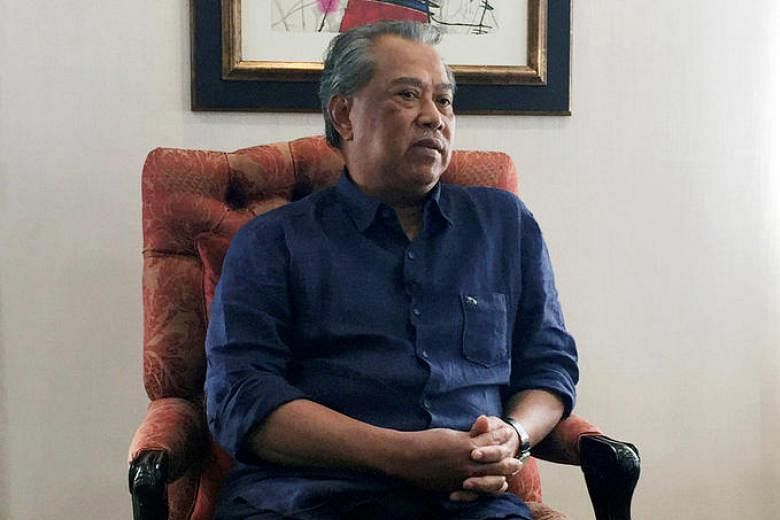Prime Minister Najib Razak is on a working visit to Germany, and back home, the guessing game is rife on who will be Malaysia's next PM.
Former PM Mahathir Mohamad said if the opposition were to win the next general elections, PPBM (the newly formed Parti Pribumi Bersatu Malaysia led by Dr Mahathir) president Muhyiddin Yassin would become the PM.
Himself the party's chairman, it is within everyone's expectation for Mahathir to name his own man for the top post.
Pakatan Harapan does not quite buy that. Parti Keadilan Rakyat (PKR), Democratic Action Party (DAP) and Parti Amanah Negara have already reached an accord long ago to accept Anwar Ibrahim as their only choice for premiership.
In the meantime, there are other discordant voices within the opposition camp. Parti Islam SeMalaysia (PAS), for instance, has never agreed to Anwar as the PM.
Even before the collapse of Pakatan Rakyat, PAS had expressed its preference for Tengku Razaleigh Hamzah to assume the post.
While the opposition has not been able to achieve some kind of consensus on the PM candidacy, the PM successor on the Barisan Nasional (BN) side is equally drawing attention.
A recent survey conducted by Institut Darul Ehsan (IDE) among the voters in Selangor shows that 32 per cent of respondents support defence minister Hishammuddin Hussein to take over the PM post, pulling ahead of DPM Ahmad Zahid Hamidi with 31 per cent and youth and sports minister Khairy Jamaluddin with 28 per cent.
Anyone with some basic understanding of the modus operandi of Malaysian politics can tell that such surveys will not serve any purpose at all, because we are practising the Westminster-style parliamentary democracy whereby the choice of PM is determined by the party that wins the election, not by popular votes.
Whether a political leader can eventually become the PM depends solely on his support rate within his party, not public consensus.
Sure enough the next PM guessing game has gained steam, but instead of spending so much time talking about the choice of PM, why not devote a little time to explore in a more profound way the power and role of the PM?
Such a discussion will not entail any particular person but only the PM position.
To put it more forthright, while it is important who will eventually helm the country in the future, a more crucial question is that we need to build up an effective checks and balances system to ensure proper operation of the executive, legislative, and judicial branches for the sake of the country's long-term development.
Under the country's existing political system, the winning party not only takes control of the executive branch, but also the legislative branch as well.
As such, total independence of the three branches of government and the checks and balances operation are difficult to be put into effective implementation, resulting in over-concentration of power in the hands of the executive branch, or to be more precise, the prime minister.
Although there have been talks earlier on that the attorney-general is the most powerful person in this country. Not true! After Abdul Gani Patail was stripped of his Attorney General post, it has become very clear that the PM is the single most powerful man here.
Power needs to be checked and restricted because history tells us human beings are prone to "abusing" things, including power.
To check the power of the PM is a prerequisite in democratic operation, and this is not targeting any specific individual or political party. Perhaps capping the PM's tenure is a good point for contemplation.

